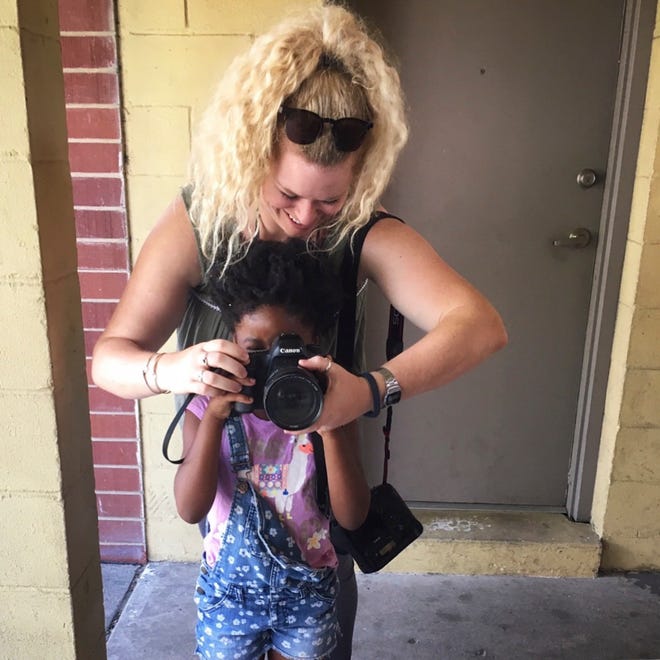
After weeks of controversy over the University of North Carolina's initial decision not to offer her tenure, investigative journalist Nikole Hannah-Jones said Tuesday she declined the tenured position and will instead join Howard University.
"It's not my job to heal the University of North Carolina," Hannah-Jones said in an interview with "CBS This Morning." "That's the job of the people in power who created this situation in the first place."
Last week, UNC Chapel Hill trustees voted to offer her tenure, reversing a decision that had drawn campus protests, criticism and accusations of racism.
She called the choice to decline UNC's offer "a very difficult decision, not a decision I wanted to make."
"To be denied (tenure) and to only have that vote occur on the last possible day, after threat of legal action, after weeks of protest, after it became a national scandal, it's just not something I want anymore," she said Tuesday on CBS.
Hannah-Jones will join Howard, a historically Black university in Washington, as a tenured faculty member and as the inaugural Knight Chair in Race and Journalism. She'll start the Center for Journalism and Democracy, which will train journalists in investigative reporting and teach them historical and analytical skills, the university said Tuesday.
Hannah-Jones is the creator of The 1619 Project for The New York Times Magazine, a Pulitzer Prize-winning project that reframed the history of slavery in the USA and its role in democracy. It has attracted criticism from conservatives who've pushed to prohibit the use of federal funds to teach The 1619 Project in K-12 public schools.
Tenure is meant to protect academic freedom and prevent faculty members from losing their positions because of their work, according to the American Association of University Professors.
"It’s pretty clear that my tenure was not taken up because of political opposition because of discriminatory views against my viewpoint and, I believe, my race and my gender,” Hannah-Jones said Tuesday.
Nearly 20 faculty members of the UNC's Hussman School of Journalism and Media said Tuesday they were disappointed but not surprised by her decision and support her choice, calling her treatment by the university "humiliating, inappropriate, and unjust."
"We will be frank: It was racist," the statement said.
The faculty members thanked Hannah-Jones for igniting conversations of equity at the university and said the school is working on creating a transparent account of what happened during Hannah-Jones' hiring process.
"What has occurred over the past several months has brought long-ignored issues in our community and nation to the forefront, but it has done so at the expense of the morale and well-being of students, staff and faculty, especially those who are BIPOC," the statement said.
Hussman school dean Susan King said she hopes the university will learn from the controversy. King approached Hannah-Jones about the possibility of joining UNC's faculty last year and pushed for her tenure.
The controversy:Nikole Hannah-Jones won't join UNC faculty without tenure, letter from lawyers says
Hannah-Jones was set to begin her position at UNC on July 1, but she said she would not join without tenure, according to a letter from her legal team.
“Being asked to return to teach at Carolina had felt like a homecoming; it felt like another way to give back to the institution that had given so much to me," she said Tuesday.
When she was initially not offered tenure, Hannah-Jones said, her treatment from her alma mater was "deeply painful."
Hannah-Jones will join Ta-Nehisi Coates, an award-winning author known for his work on race, at the university, which announced his appointment as the Sterling Brown Chair in the English department and a writer-in-residence in the College of Arts and Sciences on Tuesday.
Howard University President Wayne A. I. Frederick called Hannah-Jones one of "today's most respected and influential journalists."
"At such a critical time for race relations in our country, it is vital that we understand the role of journalism in steering our national conversation and social progress," he said in a statement welcoming her to the university. “Not only must our newsrooms reflect the communities where they are reporting, but we need to infuse the profession with diverse talent."
Hannah-Jones said her choice to join a historically Black university was intentional, saying she had been bussed to predominantly white schools since she was in second grade.
“At some point when you have proven yourself and fought your way into institutions that were not built for you, when you’ve proven you can compete and excel at the highest level, you have to decide that you are done forcing yourself in," she said in a statement.
"For too long, Black Americans have been taught that success is defined by gaining entry to and succeeding in historically white institutions," she said. "I have done that, and now I am honored and grateful to join the long legacy of Black Americans who have defined success by working to build up their own."
Contact News Now Reporter Christine Fernando at [email protected] or follow her on Twitter at @christinetfern.









